QuestionQUESTION: Hi there, I have a 2 year old female leopard gecko and recently she seems to have gone off food. She predominately has mealworms and the occasional cricket. About 10 days ago she shed, and I usually give her about 2-4 days after shedding before feeding her again. I've tried the last 5 days trying to entice her to eat but so far nothing is working. I'm starting to get a little bit worried. I have seen her drinking but she is turning her nose up at the mealworms. She hasn't done this before, so I was curious if this is normal for an older gecko?
ANSWER: Knowing a bit more about your setup would be useful--warm and cool side temperatures, what you're using to gut-load the insects and dust them with, etc.
Some leopard geckos can brumate during the winter for a while, but going off food can also be a sign of illness.
How does her tail look? If it's big and fat, then she doesn't have an immediate serious issue, at least. If it's thin, then she is probably ill.
I might be able to offer more advice with a photo of her as well, I can tell general body condition from a clear close-up photo.
---------- FOLLOW-UP ----------
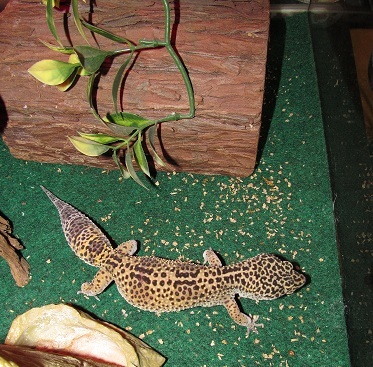 Scratch
Scratch
QUESTION: On the warm side of her tank it's about 88F - 90F, on the cold side it's between 82F and 85F. I usually put a bit of potato and apple in with the mealworms to gut-load them.
Her tail looks okay to me though now that I think about it, it does look a little smaller than usual, but I will attach her picture.
AnswerWell, her body condition looks good, but I wonder if she might be gravid (producing infertile eggs). Her stomach is pretty round, there. If she is, you will probably be able to see them through the thin skin of her belly, if you flip her over.
Her diet could be improved. Potato and apple are good for providing a water source for mealworms, but gut-loading involves giving them a nutritious variety of foods so that the lizard will also get those foods when it east them. Take them out of their bran, and put them in a separate container with some commercial gut-load formula or tropical fish flakes, and a bit of collard greens, mustard greens, or dandelion greens.
Always dust the insects with a quality calcium powder containing vitamin D3, at every feeding. Mealworms and crickets are very high phosphorus insects--they're used in reptile keeping because they're so easy to breed. That high phosphorus must be balanced with a calcium supplement, or it will lead to hypocalcemia and metabolic bone disease. Crickets are more nutritious than mealworms, and make a better staple, but leopard geckos can do ok on mealworms so long as they're properly supplemented. (Deficiency disease can take years to emerge in some cases, so prevention is important).
The extra calcium is particularly important if she is producing eggs, because hypocalcemia at that time could kill her.
If you don't see any eggs, then she may just be doing a little brumating, but improving her diet will definitely be helpful. Keep an eye on her weight, and if she starts dropping a lot of weight, take her a vet promptly.


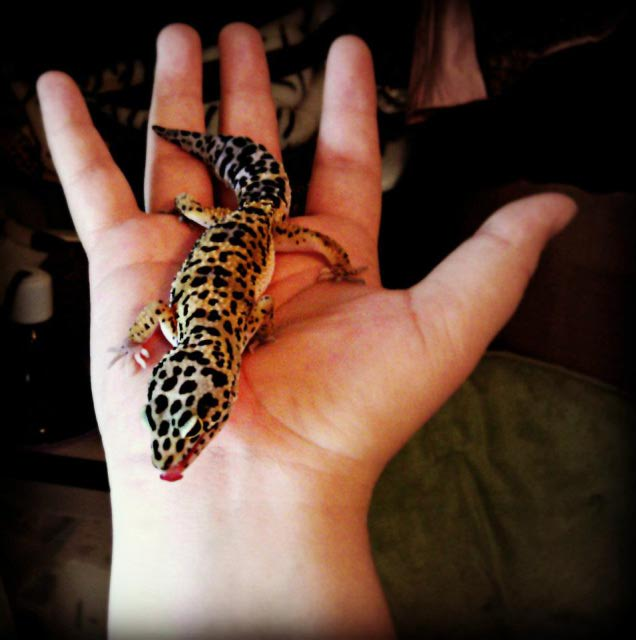 moving
QuestionQUESTION: I will be moving to another state in
moving
QuestionQUESTION: I will be moving to another state in
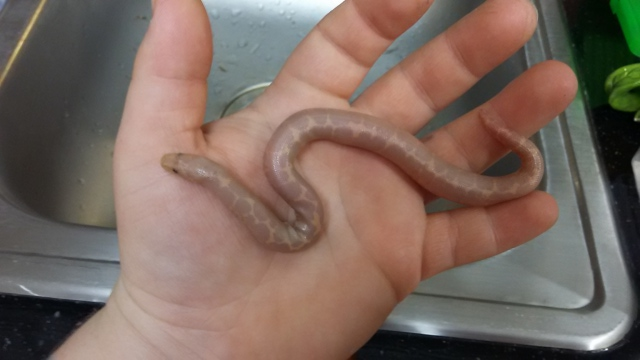 Kenyan sand boa breeding/babies
Question
The baby The mother
I have a 6 ye
Kenyan sand boa breeding/babies
Question
The baby The mother
I have a 6 ye
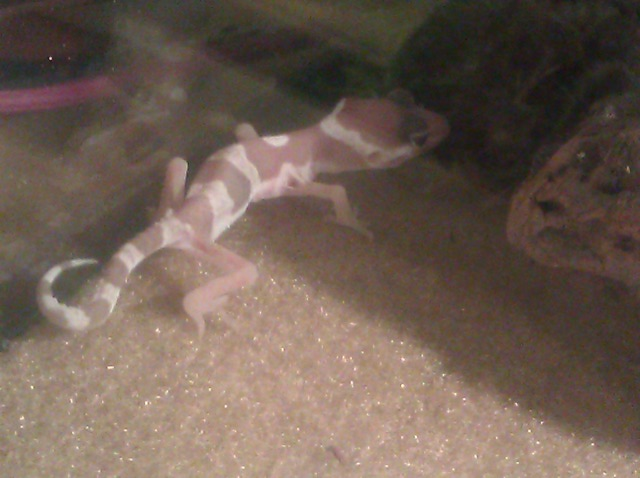 Leopard Gecko SICK
Question
Leo Gecko Under His Tail
I just r
Leopard Gecko SICK
Question
Leo Gecko Under His Tail
I just r
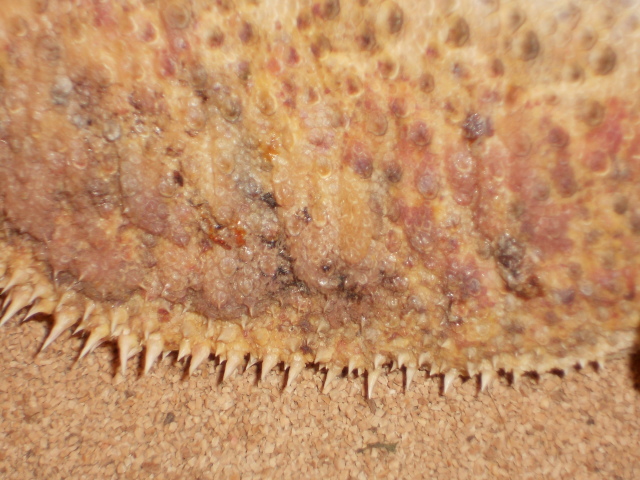 Bearded Dragon-family friend
QuestionQUESTION: Tracy- I have 2 year old beardies. On
Bearded Dragon-family friend
QuestionQUESTION: Tracy- I have 2 year old beardies. On
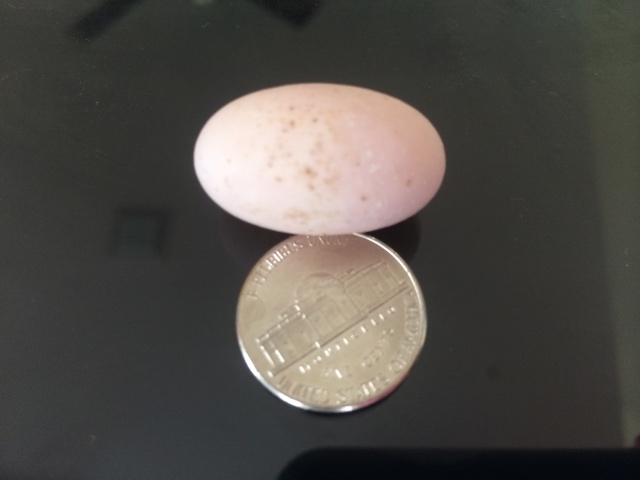 help identifying eggs I found - South Florida
Question
egg nest
Please, I found some egg
help identifying eggs I found - South Florida
Question
egg nest
Please, I found some egg